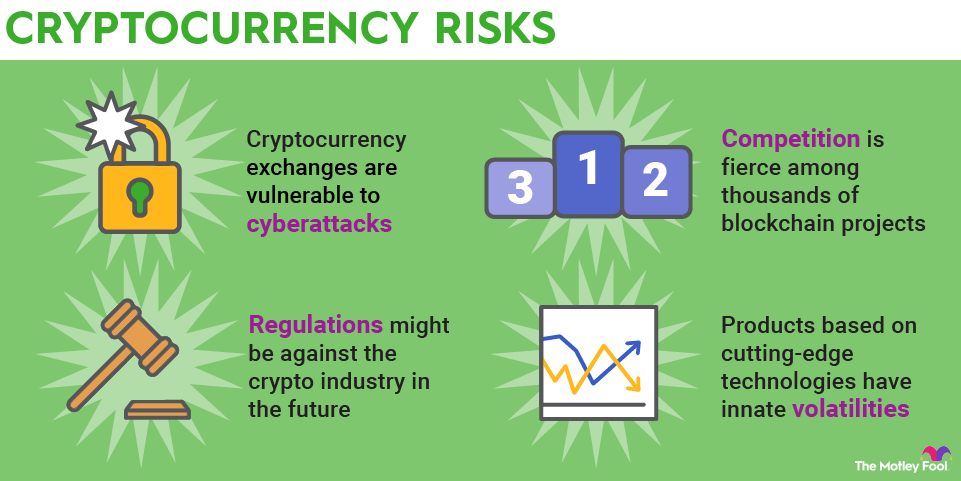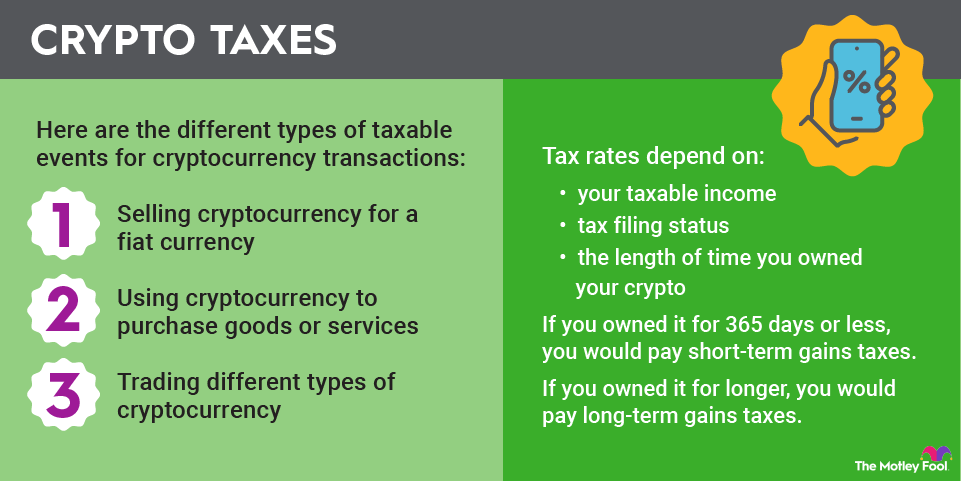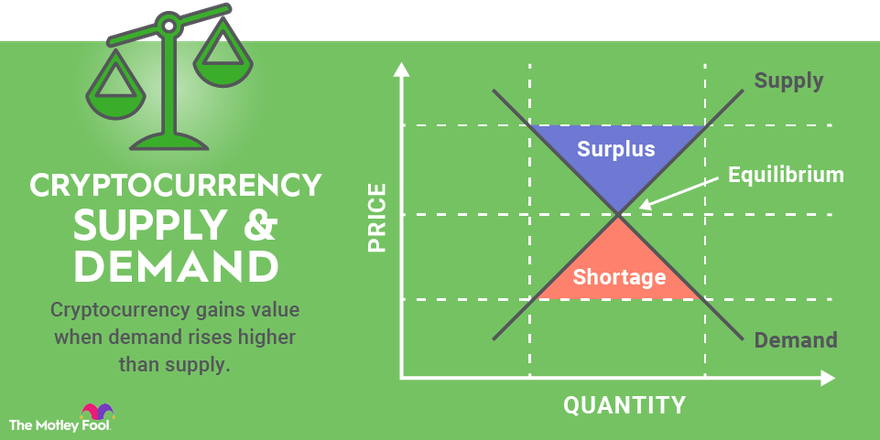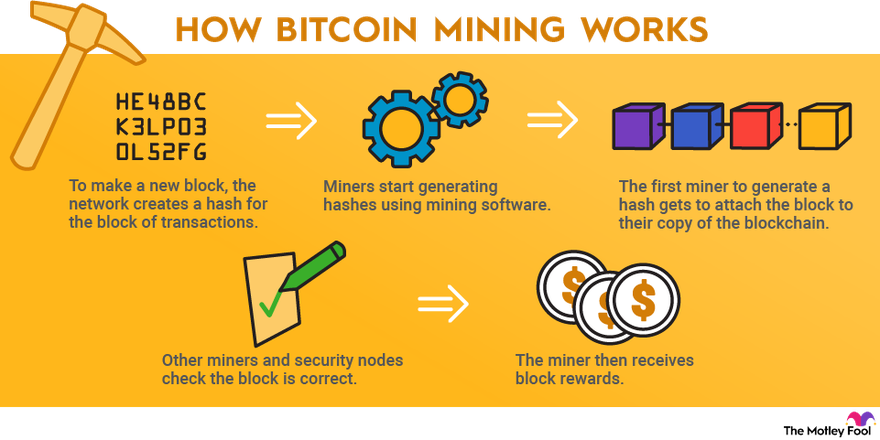There are more than 15 million cryptocurrencies, according to price-tracking website CoinMarketCap. The number of cryptocurrencies is growing faster and faster, increasing sixfold in less than a year.
The astonishing growth rate isn't entirely good news -- or truly representative of the crypto market. Many new cryptocurrencies have little purpose other than making money for their developers. The total number of cryptocurrencies also includes lots of dead coins, including abandoned projects and scams. An analysis by CoinGecko found that more than 50% of cryptocurrencies have failed.

Why has the number of cryptocurrencies been growing so rapidly? We'll answer that and cover the most important and influential cryptocurrencies below.
The most valuable and influential cryptocurrencies.
Why are there so many different cryptocurrencies?
The primary reason for the numerous cryptocurrencies is that there is practically no barrier to entry. Anyone who wants to create a cryptocurrency can do it. Even if you have zero technical know-how, you can hire someone on Fiverr (FVRR -2.93%), say, to make a cryptocurrency for $50 to $100.
It wasn't always this way. In the early days, there was only Bitcoin. Then, developers started creating altcoins. An altcoin is any cryptocurrency other than Bitcoin. Early altcoins were intended to improve on Bitcoin's performance or serve some other purpose.
Most successful cryptocurrencies still have a purpose or goal. Developers create cryptocurrencies in hopes of using blockchain technology to solve a real-world problem. But since it's extremely easy to make cryptocurrencies, the amount of money in crypto has attracted people trying to make a quick buck.
If you're looking for a good cryptocurrency investment or if you're just interested in knowing about some notable projects, here are the most popular cryptocurrencies.
1-3
Bitcoin
Bitcoin was the world's first cryptocurrency. An anonymous founder (or founders) who went by the name Satoshi Nakamoto launched Bitcoin in 2009. It was designed to be a decentralized digital currency that didn't rely on banks or financial institutions.
Newer cryptocurrencies are more technologically advanced and offer much more efficient transactions, so Bitcoin is now primarily used as a store of value. It has enjoyed a significant first-mover advantage since it's the best-known and most valuable cryptocurrency by a wide margin.
Ethereum
Ethereum introduced the idea of an open-source, programmable blockchain. Developers are able to build on the Ethereum blockchain to make their own cryptocurrency tokens and decentralized apps (dApps). This has led to the creation of decentralized finance (DeFi) -- platforms that offer decentralized versions of traditional financial services.
Although there are now more cryptocurrencies with programmable blockchains, Ethereum started it all. Its early development has helped it become firmly entrenched as the second-largest cryptocurrency.
Tether
Tether is the largest stablecoin. A stablecoin is a type of cryptocurrency designed to follow the value of another asset. In Tether's case, that is the U.S. dollar, meaning one Tether normally has a value of $1.
This cryptocurrency isn't without controversy. The company behind it, Tether Limited, falsely claimed that every Tether was backed by a U.S. dollar. Tether Limited received a civil penalty of $41 million for making untrue or misleading statements. Despite that and other problems, Tether is typically the cryptocurrency with the largest daily trading volume.
XRP
XRP is the native cryptocurrency for Ripple, a payment protocol built for fast, low-cost transactions. It's specifically intended for international money transfers, and hundreds of financial institutions have partnered with Ripple to use its technology.
At the end of 2020, the U.S. Securities and Exchange Commission (SEC) filed a lawsuit against Ripple, claiming it sold unregistered securities in the form of XRP. While the SEC was seeking $2 billion, a judge ordered Ripple to pay $125 million in penalties in August 2024; the ruling was widely seen as a win for Ripple. The Second Circuit Court of Appeals confirmed the ruling in March 2025.
BNB
BNB, originally known as Binance Coin, is the native cryptocurrency on the BNB chain. The blockchain platform was created by Binance, one of the world's best-known crypto exchanges. It quickly became a popular alternative to Ethereum due to its significantly cheaper gas fees (transaction fees).
Gas fees on the BNB chain are paid in BNB, so you need to have it to use that blockchain. The Binance exchange also offers trading fee discounts for clients who own Binance coin.
Solana
Solana is a blockchain platform built for speed and efficiency. It regularly processes thousands of transactions per second and is reportedly capable of handling 65,000 transactions per second. The average cost per transaction is less than a penny.
While Solana uses proof of stake to validate transactions, it also introduced a new method called proof of history. The method creates a historical record of transactions, and it's one of the keys to Solana's fast performance.
Proof of Stake (PoS)
USDC
USDC is a U.S. dollar stablecoin, like Tether. Each USDC has a value of $1 under normal conditions.
While Tether has a much larger market cap, USDC has a better reputation because it has been more transparent about its reserves. It releases monthly attestations of its reserves conducted by independent accountants every month. USDC is also supported by Visa (V +0.17%), which is using it as a bridge between fiat and digital currencies.
Dogecoin
Dogecoin is a cryptocurrency based on the Doge meme. The coin's creators launched it in 2013 to poke fun at crypto price speculation. It's widely considered the first meme coin, and it has spawned many imitators over the years.
Even though Dogecoin has no competitive advantage or unique use case, it has managed to become one of the most popular cryptocurrencies. Dogecoin and the meme coins that have followed it are proof of how much hype can matter in the crypto market.
Cardano
Cardano is an open-source blockchain platform made by one of the co-founders of Ethereum. It is intended to solve a wide range of problems, including making financial services and identity records accessible to everyone. Cardano development is based on peer-reviewed research, so it tends to move more slowly than other projects.
This was one of the first major cryptocurrencies to use proof of stake to verify transactions. Proof of stake is a more energy-efficient alternative to proof of work, which is used by Bitcoin and many other major cryptos.
TRON
TRON is a programmable blockchain with the goal of decentralizing the web through blockchain technology and dApps. It was originally a crypto token on Ethereum before launching its own blockchain.
This cryptocurrency is unique for its focus on the entertainment industry, using blockchain technology to connect content creators with consumers. It's also known for its founder, Justin Sun, an outspoken member of the crypto community who has been sued by the SEC for fraud and selling unregistered securities.
Related investing topics
Why are cryptocurrencies important?
Cryptocurrencies improve on certain aspects of traditional fiat currency. They don't need the backing of a federal government, and they process transactions entirely on their own, without financial institutions. Using a cryptocurrency, people on opposite sides of the world can transfer funds quickly and at a low cost.
Although the original purpose of cryptocurrency was to be an alternative to traditional currency, that's no longer the only use. Developers are continually looking for ways to use cryptocurrencies and blockchain technology to solve real-world problems, such as how XRP aims to make international money transfers faster and cheaper.
With so many cryptocurrencies available, it can be hard to know where to invest. It's important to carefully research any cryptocurrency that you're thinking about buying. When in doubt, cryptocurrency stocks and larger coins tend to be the safest investment options.



















